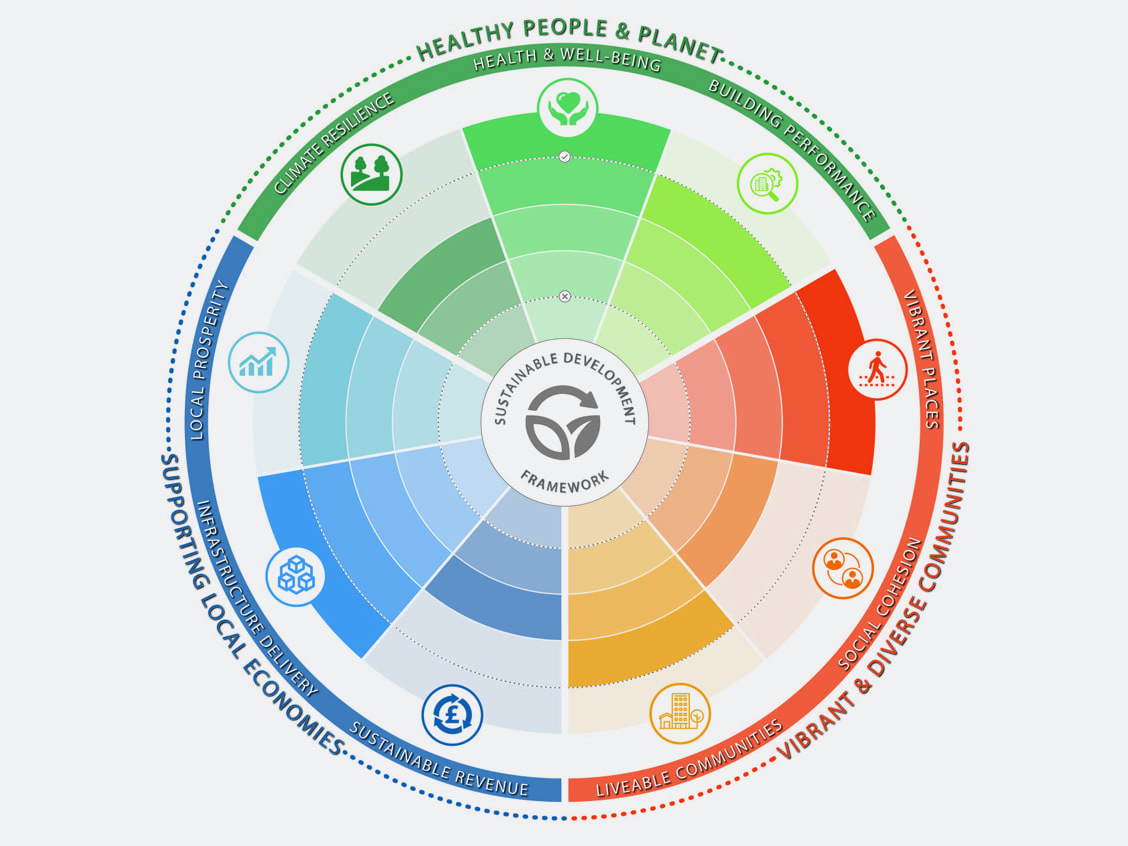
How is sustainability rated and evaluated? Derek Wilson, Head of Sustainability at Transport for London, observes the different rating systems at an organisational and development level.
Five years ago, TfL commenced a major programme of property development across its estate of 5,700 acres in London. With more than 40 sites now under various stages of delivery and thousands of homes in the pipeline, this programme will leave a legacy in the capital and has the potential to positively impact on London’s sustainability for many decades to come.We are proud that five years into our programme TfL has earned 5 Stars from GRESB and been ranked 1st in Europe among 59 diversified property companies for the sustainability of our development portfolio.
At the outset, we knew that our role as a public sector entity meant we had a responsibility to Londoners to make the most of our estate. Equally, as a new developer, we recognised the immense challenge of that prospect. In order to meet that challenge we looked to the private sector and other NLA members for inspiration. What we found is that property companies leading the industry in sustainable development consistently adopt a performance-focused approach.
Specifically, these leaders combine ambitious vision and well-defined strategy with focused performance metrics and quantitative targets, thereby ensuring that ambitions and strategies are translated into SMART (specific, measurable, achievable, relevant, and time-based) outcomes on the ground. They avoid greenwash and platitudes; they translate principles into real outcomes through the use of key performance indicators. This idea has served as our ‘north star’. However, we saw two key issues with existing approaches which have led us to think differently.
First, the KPIs used by our sector tend to focus on the environmental performance of buildings, to the exclusion of wider environmental, social, and economic issues.
While these topics are often covered by other corporate policies, they do not get reflected within the KPI-based method outlined above. This neglects an important reality; namely, that environmental, social, and economic issues are intrinsically linked. We found it impossible to optimise outcomes across the triple-bottom-line without considering the synergies and conflicts between them, and when addressing building performance in terms of KPIs and socio-economic value through separate and siloed guidance, these linkages get lost.
Second, we found that current industry best practice focuses on setting a performance target against each metric – that is, a single number. This doesn’t recognise that development sites are unique with their own set of constraints and opportunities.
Consequently, when these singular targets are applied across an entire portfolio, the targets must be set low enough to be applicable in all cases, irrespective of the site-specific potential for better outcomes. This lowest-common-denominator approach does not necessarily preclude those outcomes, but the reality is that they usually get left on the table through the process of value engineering.
Our approach, the TfL Sustainable Development Framework, seeks to address these issues while incorporating our ‘north star’ principle of metric-driven performance. Containing nine dimensions and more than 80 KPIs across the triple-bottom-line, this framework sets out performance ‘bands’ which begin with a baseline and end with a target for industry-leading practice. This allows us to deliver high performance as a minimum, push the envelope where possible, and make strategic trade-offs between environmental, social, and economic outcomes to maximise overall performance in line with our public sector responsibilities and the priorities of local communities.
It is this approach, combined with TfL’s CSR policies and intensive community engagement programme, that led to TfL earning 5 Stars and obtaining the top score for development in Europe in GRESB 2020. While we are proud of this result, there is plenty yet to do, and as with many organisations in the sector we continue to grapple with systemic challenges. Zero carbon is foremost among them. There are solutions out there but delivering real results in the face of commercial considerations remains a challenge – and we once again look to our fellow members for inspiration, this time with a view towards collaborating and building a zero carbon London together.

